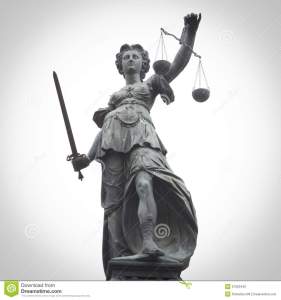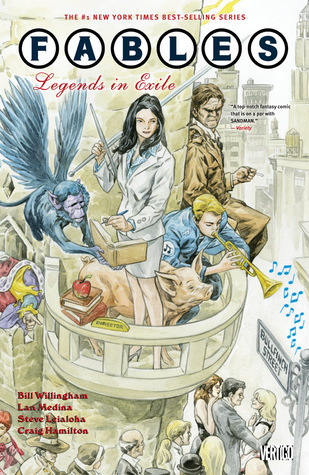 Robert Mueller’s Justice Department investigation of Trump/Russia collusion and of obstruction of justice by Donald Trump provides the best sign that not all official institutions are going to role over and play dead in the face of Trump’s fast growing authoritarianism. Mueller’s investigation has hit the ground running as he has collected a strong experienced legal team. It seems clear that a reckoning is at hand. Less clear – the jury is still out – is whether Trump or Mueller holds a winning hand.
In that light, I recommend Tim Weiner’s excellent article in The New York Times, “How Donald Trump Misunderstood the F.B.I.” A must read, Weiner’s piece shows that the history of the F.B.I. as an independent check on abuse of presidential power dates back to the Watergate era. As Weiner notes, “over the course of two decades and five presidents, the post-Hoover relationship between the F.B.I. and the White House had settled into a delicate balance between the rule of law and the chief of state. Presidents could use secrecy, and sometimes outright deception, to push their executive powers to the limit. But the F.B.I., through its investigative brief, retained a powerful unofficial check on these privileges: the ability to amass, and unveil, deep secrets of state. The agency might not have been able to stop presidents like Nixon and Reagan from overreaching, but when it did intervene, there was little presidents could do to keep the F.B.I. from making their lives very difficult — as Bill Clinton discovered in 1993, when he appointed Louis J. Freeh as his F.B.I. director. ” It was Freeh’s F.B.I. that would ultimately trip up Clinton for his dalliance with Lewinsky.
And it was Robert Mueller who followed Freeh as Director of the F.B.I., now heir to a tradition of institutional independence uncowed by the presidency. Weiner notes of Mueller that, “born into a wealthy family, Mueller exemplified ‘’the tradition of the “muscular Christian” that came out of the English public-school world of the 19th century,’ Maxwell King, Mueller’s classmate at St. Paul’s, the elite New England prep school, told me. Mueller arrived at F.B.I. headquarters with a distinguished military record — he earned a bronze star as a Marine in Vietnam — and years of service as a United States attorney and Justice Department official.” Mueller proved to be innovative and dynamic, moving to solve the moribund Lockerbie case. Weiner again, “Mueller used his power under law to obliterate the F.B.I.’s byzantine flow charts of authority in the case. ‘We literally cut out the chains of command,’ Marquise said. ‘We brought in the C.I.A. We brought the Scots. We brought MI5 to Washington. And we sat down and we said: “We need to change the way we’re doing business. . . . We need to start sharing information.’’’ It was a tip from the Scots that put Marquise on the trail of the eventual suspect: one of Col. Muammar el-Qaddafi’s intelligence officers, whose cover was security chief for the Libyan state airlines. Qaddafi’s spy, Abdel Basset Ali al-Megrahi, was indicted in 1991. It took until the turn of the 21st century, but he was convicted.”
And as Weiner notes, it was Mueller who thereafter confronted George W. Bush to rein in his unconstitutional “Stellar Wind” surveillance program.
So now, it is Mueller, a straight shooter with a record of independence, versus Trump. We know Trump is neither a Nixon nor a Bush, but a practiced conman who has made a living skirting and confronting the law. With his staff of henchmen, Bannon, Sessions, and Kushner, with his presidential powers, he is a formidable foe. But Mueller, as we know, is in the right; the facts are on his side. And so the game begins.
Advertisements
Share this:
Robert Mueller’s Justice Department investigation of Trump/Russia collusion and of obstruction of justice by Donald Trump provides the best sign that not all official institutions are going to role over and play dead in the face of Trump’s fast growing authoritarianism. Mueller’s investigation has hit the ground running as he has collected a strong experienced legal team. It seems clear that a reckoning is at hand. Less clear – the jury is still out – is whether Trump or Mueller holds a winning hand.
In that light, I recommend Tim Weiner’s excellent article in The New York Times, “How Donald Trump Misunderstood the F.B.I.” A must read, Weiner’s piece shows that the history of the F.B.I. as an independent check on abuse of presidential power dates back to the Watergate era. As Weiner notes, “over the course of two decades and five presidents, the post-Hoover relationship between the F.B.I. and the White House had settled into a delicate balance between the rule of law and the chief of state. Presidents could use secrecy, and sometimes outright deception, to push their executive powers to the limit. But the F.B.I., through its investigative brief, retained a powerful unofficial check on these privileges: the ability to amass, and unveil, deep secrets of state. The agency might not have been able to stop presidents like Nixon and Reagan from overreaching, but when it did intervene, there was little presidents could do to keep the F.B.I. from making their lives very difficult — as Bill Clinton discovered in 1993, when he appointed Louis J. Freeh as his F.B.I. director. ” It was Freeh’s F.B.I. that would ultimately trip up Clinton for his dalliance with Lewinsky.
And it was Robert Mueller who followed Freeh as Director of the F.B.I., now heir to a tradition of institutional independence uncowed by the presidency. Weiner notes of Mueller that, “born into a wealthy family, Mueller exemplified ‘’the tradition of the “muscular Christian” that came out of the English public-school world of the 19th century,’ Maxwell King, Mueller’s classmate at St. Paul’s, the elite New England prep school, told me. Mueller arrived at F.B.I. headquarters with a distinguished military record — he earned a bronze star as a Marine in Vietnam — and years of service as a United States attorney and Justice Department official.” Mueller proved to be innovative and dynamic, moving to solve the moribund Lockerbie case. Weiner again, “Mueller used his power under law to obliterate the F.B.I.’s byzantine flow charts of authority in the case. ‘We literally cut out the chains of command,’ Marquise said. ‘We brought in the C.I.A. We brought the Scots. We brought MI5 to Washington. And we sat down and we said: “We need to change the way we’re doing business. . . . We need to start sharing information.’’’ It was a tip from the Scots that put Marquise on the trail of the eventual suspect: one of Col. Muammar el-Qaddafi’s intelligence officers, whose cover was security chief for the Libyan state airlines. Qaddafi’s spy, Abdel Basset Ali al-Megrahi, was indicted in 1991. It took until the turn of the 21st century, but he was convicted.”
And as Weiner notes, it was Mueller who thereafter confronted George W. Bush to rein in his unconstitutional “Stellar Wind” surveillance program.
So now, it is Mueller, a straight shooter with a record of independence, versus Trump. We know Trump is neither a Nixon nor a Bush, but a practiced conman who has made a living skirting and confronting the law. With his staff of henchmen, Bannon, Sessions, and Kushner, with his presidential powers, he is a formidable foe. But Mueller, as we know, is in the right; the facts are on his side. And so the game begins.
Advertisements
Share this:Mueller v. Trump, the game begins
 Robert Mueller’s Justice Department investigation of Trump/Russia collusion and of obstruction of justice by Donald Trump provides the best sign that not all official institutions are going to role over and play dead in the face of Trump’s fast growing authoritarianism. Mueller’s investigation has hit the ground running as he has collected a strong experienced legal team. It seems clear that a reckoning is at hand. Less clear – the jury is still out – is whether Trump or Mueller holds a winning hand.
In that light, I recommend Tim Weiner’s excellent article in The New York Times, “How Donald Trump Misunderstood the F.B.I.” A must read, Weiner’s piece shows that the history of the F.B.I. as an independent check on abuse of presidential power dates back to the Watergate era. As Weiner notes, “over the course of two decades and five presidents, the post-Hoover relationship between the F.B.I. and the White House had settled into a delicate balance between the rule of law and the chief of state. Presidents could use secrecy, and sometimes outright deception, to push their executive powers to the limit. But the F.B.I., through its investigative brief, retained a powerful unofficial check on these privileges: the ability to amass, and unveil, deep secrets of state. The agency might not have been able to stop presidents like Nixon and Reagan from overreaching, but when it did intervene, there was little presidents could do to keep the F.B.I. from making their lives very difficult — as Bill Clinton discovered in 1993, when he appointed Louis J. Freeh as his F.B.I. director. ” It was Freeh’s F.B.I. that would ultimately trip up Clinton for his dalliance with Lewinsky.
And it was Robert Mueller who followed Freeh as Director of the F.B.I., now heir to a tradition of institutional independence uncowed by the presidency. Weiner notes of Mueller that, “born into a wealthy family, Mueller exemplified ‘’the tradition of the “muscular Christian” that came out of the English public-school world of the 19th century,’ Maxwell King, Mueller’s classmate at St. Paul’s, the elite New England prep school, told me. Mueller arrived at F.B.I. headquarters with a distinguished military record — he earned a bronze star as a Marine in Vietnam — and years of service as a United States attorney and Justice Department official.” Mueller proved to be innovative and dynamic, moving to solve the moribund Lockerbie case. Weiner again, “Mueller used his power under law to obliterate the F.B.I.’s byzantine flow charts of authority in the case. ‘We literally cut out the chains of command,’ Marquise said. ‘We brought in the C.I.A. We brought the Scots. We brought MI5 to Washington. And we sat down and we said: “We need to change the way we’re doing business. . . . We need to start sharing information.’’’ It was a tip from the Scots that put Marquise on the trail of the eventual suspect: one of Col. Muammar el-Qaddafi’s intelligence officers, whose cover was security chief for the Libyan state airlines. Qaddafi’s spy, Abdel Basset Ali al-Megrahi, was indicted in 1991. It took until the turn of the 21st century, but he was convicted.”
And as Weiner notes, it was Mueller who thereafter confronted George W. Bush to rein in his unconstitutional “Stellar Wind” surveillance program.
So now, it is Mueller, a straight shooter with a record of independence, versus Trump. We know Trump is neither a Nixon nor a Bush, but a practiced conman who has made a living skirting and confronting the law. With his staff of henchmen, Bannon, Sessions, and Kushner, with his presidential powers, he is a formidable foe. But Mueller, as we know, is in the right; the facts are on his side. And so the game begins.
Advertisements
Share this:
Robert Mueller’s Justice Department investigation of Trump/Russia collusion and of obstruction of justice by Donald Trump provides the best sign that not all official institutions are going to role over and play dead in the face of Trump’s fast growing authoritarianism. Mueller’s investigation has hit the ground running as he has collected a strong experienced legal team. It seems clear that a reckoning is at hand. Less clear – the jury is still out – is whether Trump or Mueller holds a winning hand.
In that light, I recommend Tim Weiner’s excellent article in The New York Times, “How Donald Trump Misunderstood the F.B.I.” A must read, Weiner’s piece shows that the history of the F.B.I. as an independent check on abuse of presidential power dates back to the Watergate era. As Weiner notes, “over the course of two decades and five presidents, the post-Hoover relationship between the F.B.I. and the White House had settled into a delicate balance between the rule of law and the chief of state. Presidents could use secrecy, and sometimes outright deception, to push their executive powers to the limit. But the F.B.I., through its investigative brief, retained a powerful unofficial check on these privileges: the ability to amass, and unveil, deep secrets of state. The agency might not have been able to stop presidents like Nixon and Reagan from overreaching, but when it did intervene, there was little presidents could do to keep the F.B.I. from making their lives very difficult — as Bill Clinton discovered in 1993, when he appointed Louis J. Freeh as his F.B.I. director. ” It was Freeh’s F.B.I. that would ultimately trip up Clinton for his dalliance with Lewinsky.
And it was Robert Mueller who followed Freeh as Director of the F.B.I., now heir to a tradition of institutional independence uncowed by the presidency. Weiner notes of Mueller that, “born into a wealthy family, Mueller exemplified ‘’the tradition of the “muscular Christian” that came out of the English public-school world of the 19th century,’ Maxwell King, Mueller’s classmate at St. Paul’s, the elite New England prep school, told me. Mueller arrived at F.B.I. headquarters with a distinguished military record — he earned a bronze star as a Marine in Vietnam — and years of service as a United States attorney and Justice Department official.” Mueller proved to be innovative and dynamic, moving to solve the moribund Lockerbie case. Weiner again, “Mueller used his power under law to obliterate the F.B.I.’s byzantine flow charts of authority in the case. ‘We literally cut out the chains of command,’ Marquise said. ‘We brought in the C.I.A. We brought the Scots. We brought MI5 to Washington. And we sat down and we said: “We need to change the way we’re doing business. . . . We need to start sharing information.’’’ It was a tip from the Scots that put Marquise on the trail of the eventual suspect: one of Col. Muammar el-Qaddafi’s intelligence officers, whose cover was security chief for the Libyan state airlines. Qaddafi’s spy, Abdel Basset Ali al-Megrahi, was indicted in 1991. It took until the turn of the 21st century, but he was convicted.”
And as Weiner notes, it was Mueller who thereafter confronted George W. Bush to rein in his unconstitutional “Stellar Wind” surveillance program.
So now, it is Mueller, a straight shooter with a record of independence, versus Trump. We know Trump is neither a Nixon nor a Bush, but a practiced conman who has made a living skirting and confronting the law. With his staff of henchmen, Bannon, Sessions, and Kushner, with his presidential powers, he is a formidable foe. But Mueller, as we know, is in the right; the facts are on his side. And so the game begins.
Advertisements
Share this:
Related articles





